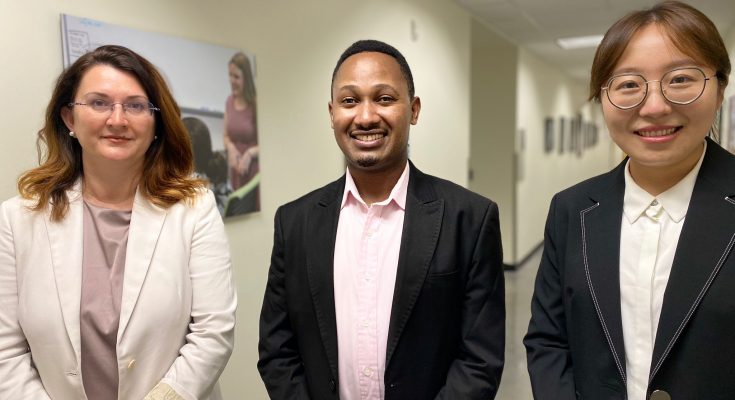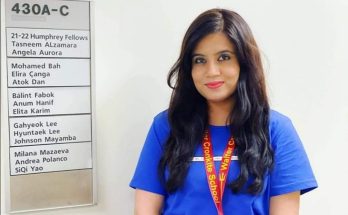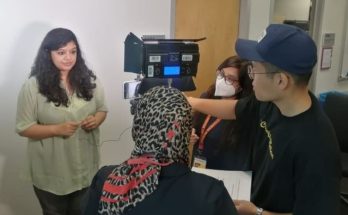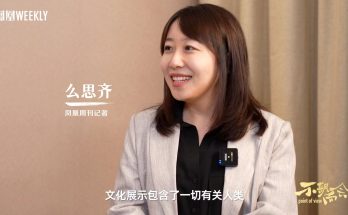When Siqi Yao confirmed her Hubert Humphrey Fellowship she knew she would be disrupting her life in Beijing, China. She was leaving her husband behind and moving to the other side of the world for almost a year. It was going to be her first time in the U.S.A. and she was excited that as she gets to immerse herself in a new culture, that she’d also be developing her craft. In China, Siqi writes about the Asia Pacific region; shifts in manufacturing; and the U.S.-China relations. And what better time to be documenting one of the most globally significant economic relationships? But Siqi has put a pause on writing about two of the largest economies and what their relations mean for the ordinary man and woman so that she can develop and hone her skills to bring even more value to her readers.
On the other side of the world, a human rights journalist in Africa was also packing his bags to relocate to Phoenix, Arizona. Johnson Mayamba, a father of one, works as a journalist and media trainer in his home country of Uganda where his work helps to develop advocacy tools, influence policy and contribute to research. Johnson will tell you that in the last decade never has his work mattered more as human rights deteriorate in Uganda. Regressive and restrictive rights to freedom of expression, violations of peaceful assembly and association, as well as infringements on press freedom and marginalization and criminalization of minority and vulnerable groups in that eastern African country have become part and parcel of life. And that is why Johnson left his family and country to live in the U.S.A. for ten months to equip himself with new tools and knowledge to return to empower other journalists and, by extension, the people of Uganda.
And over in Albania, Elira Canga was in the throes of figuring out a move to the U.S.A with her entire family – a husband and three kids! Elira, like all the other fellows, started out as a journalist. She now works on the other end – to develop and modernize the media industry to global standards in Albania. As the media industry becomes increasingly competitive and accelerates exponentially with the evolution of technology, Elira lists fact-checking, information literacy, and countering disinformation online as critical parts of her contribution to media development in her country. But to keep up with the trends and standards it is imperative that Elira, who is molding the new generation of journalism gate-keepers in Albania, also boosts her expertise and that is why she is at the Walter Cronkite School of Journalism and Mass Communication.
Three brilliant, talented, game changers from different parts of the world have now crossed paths at the Arizona State University. They bring a wealth of experience with rich and unique perspectives. I sat down for a Q + A with Siqi, Johnson, and Elira to learn about how they are navigating life in Phoenix, Arizona – having come from far away and from different cultures. I also want to give you a snippet of these fascinating individuals who have made personal sacrifices to empower their citizenry. They want to ultimately use journalism to leave their countries better than how they found it. I hope that their experiences and stories help to illuminate your view of not just where you live but the wider world and that they provide greater insights for you to appreciate and celebrate the similarities and differences. I want you to be inspired by these journalists – the game changers among us.
AP: How has your life changed since you’ve relocated to AZ, U.S.A.?
SY: My life has changed a lot. This is my first time in the US. I have been adapting to the new
life i.e., American and speaking English everyday. The month before my departure was the most difficult month this year for me and my family, as well as at work because we had a lot of unexpected events. When I arrived, I wasn’t sure if I was ready; everything was moving forward quickly and I needed to find a new balance. Somedays I am in control and cope with a lot of things. I feel like I have found a new balance, but obviously not all the time.
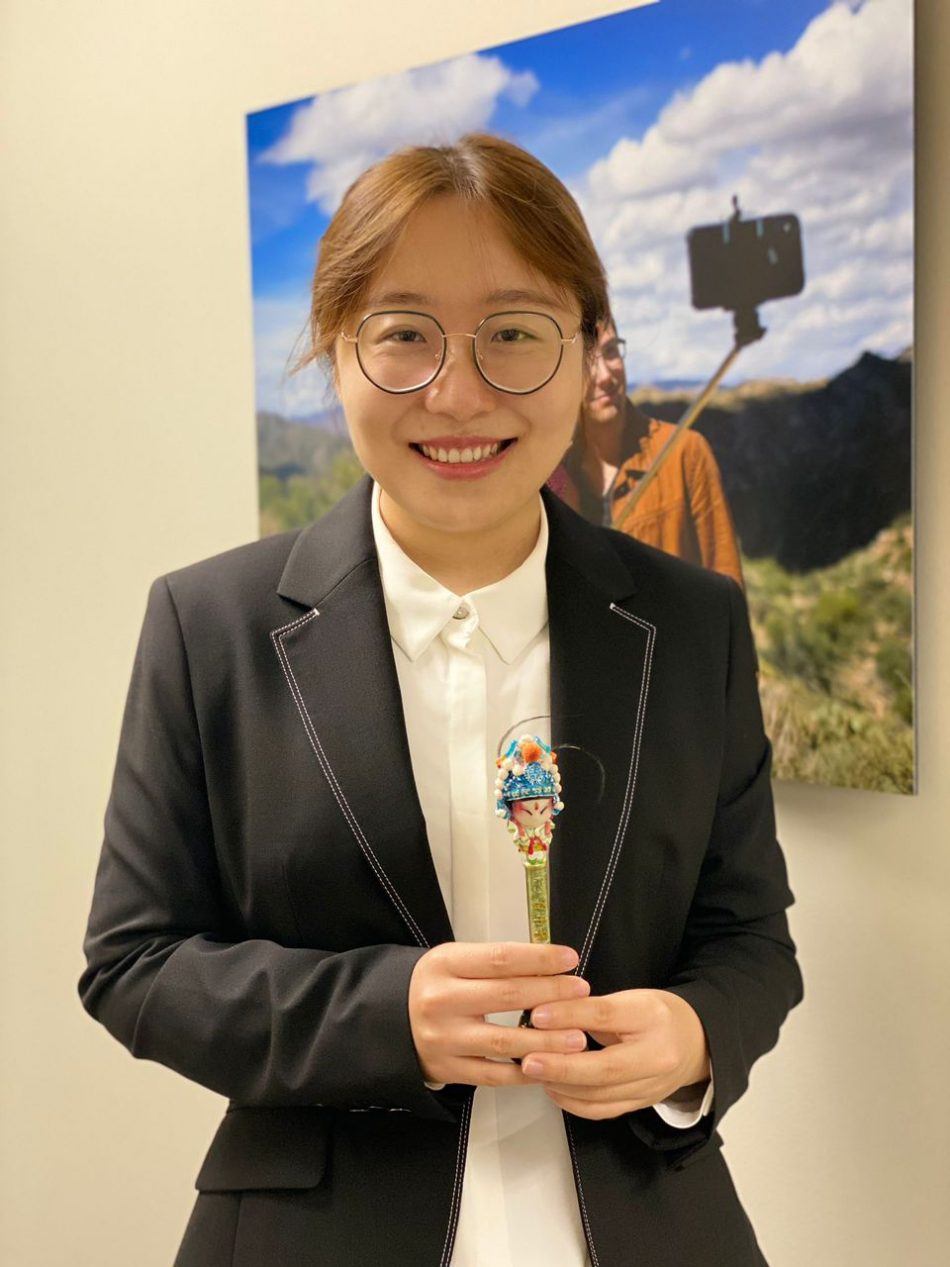
JM: I have had the opportunity to interact with and learn from a global community; fellows from the other 12 countries and Americans. It is an experience I am treasuring and enjoying each day. I have actually lost count of the things I have done in this short time so far. That aside, Arizona is 10 hours behind the East African time zone. As we are waking up here, my people back in Uganda are preparing to sleep and vice versa. So, keeping up the communication with them has been a challenge. Additionally, Arizona is a very hot place as others refer to it as an oven. I find myself confined in buildings to avoid the heat wave, something I was not used to. Nonetheless, I am ready to rock AZ and the US as a whole the more.
EC: Enormously. Back to university again was a very pleasant return. Life now has a different rhythm. I am very busy. But, surprisingly, I also have time for myself. I am running every morning and I am practicing Yoga. I think I have selected to do only those things that matter most to me and not everything what comes my way.
AP: Name a similarity and a difference in the USA when compared to your country?
SY: The difference I have to say lies in the food. When I was in China, I wanted hamburger, pizza, and salad but now, I would feel full when I see a hamburger. That’s so interesting. The food in China and America is very different and the food culture is also different. I brought my own chopsticks because I’m still not used to use knives and forks in daily life. The similarity is the convenience of shopping online. During the first month here, I did all my daily necessities online, except going to the nearby grocery. When my global friend asked if I needed a ride to go shopping, I had everything covered. My life in Beijing is also, like this.
JM: The Americans smile a lot and are generally polite and nice people. Ugandans smile, too, and are welcoming people but only if they either know you or when you are entering business premises where they have to make an impression on customers. But the Americans overdo it even to strangers. About the politeness of Americans, I will give you an example. During orientation, the Police Department advised us that when we enter any building, we should close doors behind us to deny access to any strangers. As someone who likes following rules, I did it one day and it came off as being rude to the people who were following me to the same building. I have since decided to break that rule. I now open and hold doors for anyone to either enter or leave the building first as I smile on, waiting for them to say “thank you” before I can follow. Well, these are things I used to watch in romantic love movies back home. I currently feel like I am ripe for a role in Hollywood. Maybe it’s my accent that will give me away when that time comes for me to ask for water and pronounce it the Ugandan way as “wota” instead of “wora”, the way Americans do it. The other obvious difference between Uganda and AZ is that the city of Phoenix is way more developed and organized than my home city, Kampala, although to survive in Phoenix, you must pay through the nose. The other shocker for me was that at my age, I still have to keep showing my ID indicating the date of birth before I can be allowed to purchase alcohol anywhere. One time I asked the lady to observe my face and make a judgement if I am underage, she refused!
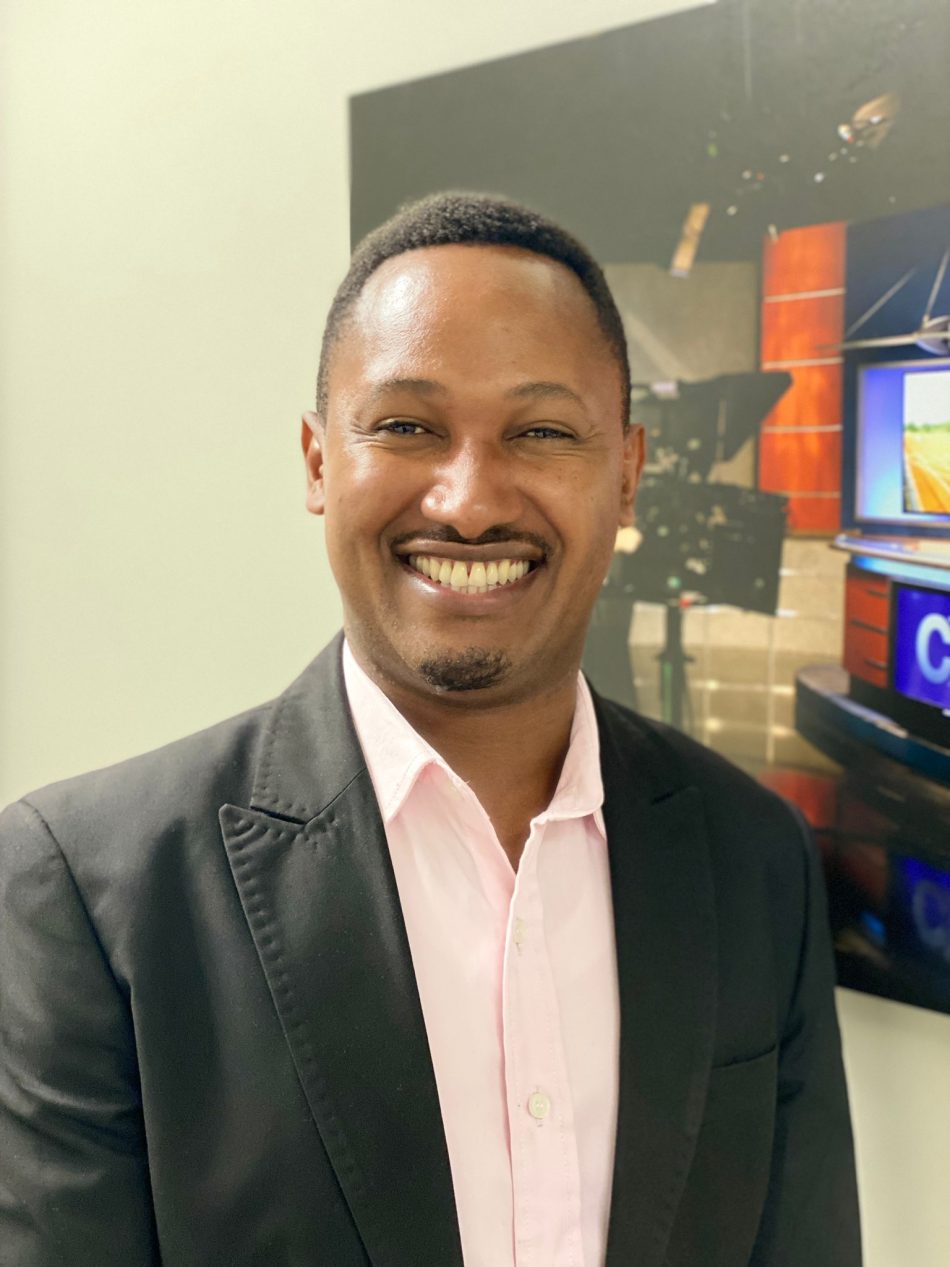
EC: I can’t find similarities. Differences I can find a lot. One of them is that life seems a bit slower in my country. This means that despite the fact that I was very engaged, I always had time to sit down every day for a coffee with myself, friends of colleagues. Since I arrived here, I can count only 2-3 times I have done that. I am on a constant run.
AP: What surprised you about studying at ASU (i.e., studying at an American University)?
SY: ASU provides many services outside of the professional courses, such as fitness, mental health counseling, and health centers, which are very important to students, even more important than high grades. Secondly, there is a lot of assignments to be done. I hope I can finish them all!
JM: While it is common in Uganda to have a lecturer stand in front of a class and talk all the time with less interaction with students, ASU (and I guess with other American universities) puts emphasis on student-centered learning. Students are expected to read ahead of time so they can be prepared to discuss what they learnt through personal reading. If they have questions, students can answer them with the guidance of a lecturer. I find this to be an effective way of learning. Also, learning is by real time practice in the US. It is also interesting that students are very free in American universities. Uganda Christian University, which is my alma mater, has a strict dress code for everyone that enters its gates. Ladies are not expected to wear tight, short and revealing clothes or have kinky hairstyles while men are barred from wearing shorts, sandals, having dreadlocks, exposed tattoos and piercings of any kind. The Islamic University in Uganda (IUIU) has a stricter Code of Conduct for their students and staff too. From such a background, I am still so shy to have a simple tattoo or even show off my well-shaped legs and one pack. And here I am attending classes with students wearing pajamas, bikers, vests, short-shorts that almost look like boxers, hairstyles of all colors and cropped tops revealing all the bodily artwork that sometimes leave me appreciating God’s wondrous works. It is also not haram to eat in the US class as lectures go on. But yes, this is part of what defines the US as the land of the free.
EC: Teaching methods. They are very practical. In my country, we mostly teach theories. Here I can have a hands-on approach during all lectures.
AP: What is one thing you found out that Americans know about your country?
SY: I have to say it is crowded. Everyone knows that China is so crowded, especially in a city like Beijing, it’s like a fight to go to work every morning rush hour. Everyone who has been to Beijing will say.
JM: So far, there are some people I have interacted with who know little or nothing about Uganda. They assume Africa is one big country. I was surprised when, in the course of introducing myself, a professor asked me to show him where Uganda is found on a map. Others get to remember when I mention East Africa; Yoweri Museveni as one of the longest serving presidents in history; Lake Victoria as the largest water body in Africa and Source of the Nile. Some know Uganda either through books because they have read or stories or they interact with it in the international media. And for this latter category, the most people they remember are opposition politicians Bobi Wine and Kizza Besigye, former dictator Iddi Amin and things like the country’s tough record against sexual minorities. I guess challenges of not reading widely are spread across the globe.
EC: I am not sure if they know even one thing about my country. Maybe, only that Albania is located in Europe.
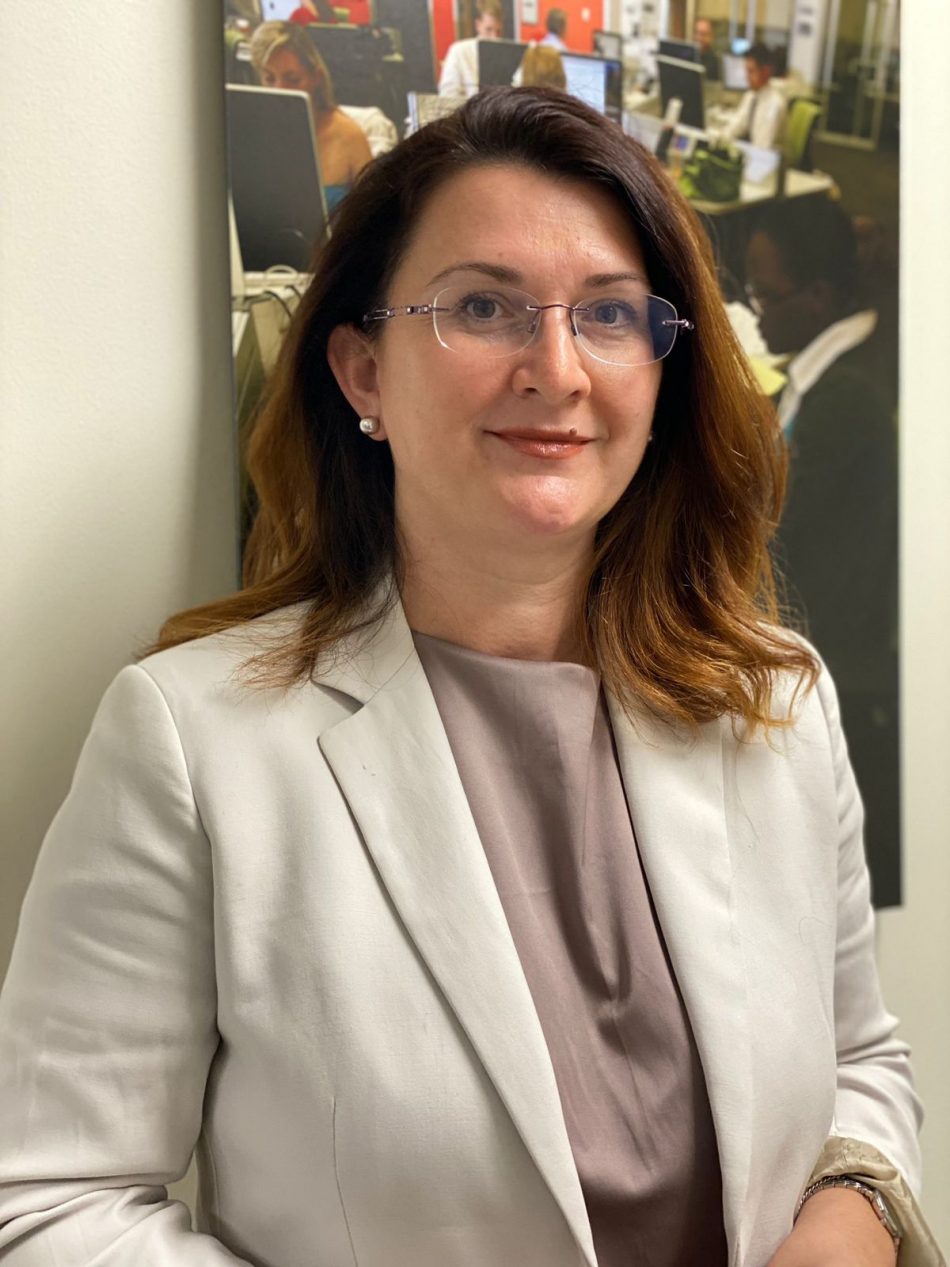
AP: What are u looking forward to the most about being in the USA as a Humphrey Fellow?
SY: I hope to get professional and personal improvement. I hope to have a lot of professional
and non-professional communication. I believe if you want to be a good journalist, you need to do something other than journalism.
JM: Learning from and sharing what I have with the Humphrey Fellows, faculty, students and the larger American community. I have also realized that Americans not only work hard but also party hard. I hope I can learn to balance the two.
EC: Knowing this new way of thinking, learning, planning, getting engaged, meeting new friends and creating nice memories. Getting to know the country and the region better with all its differences compared to others. Visiting new interesting places.
AP: Tell me one surprising fact about yourself…?
SY: I’m allergic to pets and can’t stop coughing when I stay with a dog. I can’t even be in an
elevator with a dog and a cat. Every time I meet a pet in an elevator, I will hold my breath. I don’t know if it’s a surprising thing.
JM: As part of culture in my tribe of Bamasaba also known as Bagisu in Uganda, I went through traditional circumcision called Imbalu in 2006. This is one of the most dreaded rituals that is done in even years thus 2020, 2022, 2024, et cetera to initiate teenage boys into manhood. You may watch the video https://www.youtube.com/watch?v=ROkUdHrJH0w to have an idea about the process.
EC: I met my husband in a newsroom but in 20 years we have never worked together!
Connect with Siqi, Johnson, and Elira to learn more about their work:
JM: https://bit.ly/3hpsnpL / @banziyanga
EC: https://bit.ly/3uaqlPs
*Note: This article was edited and condensed for clarity and length.

